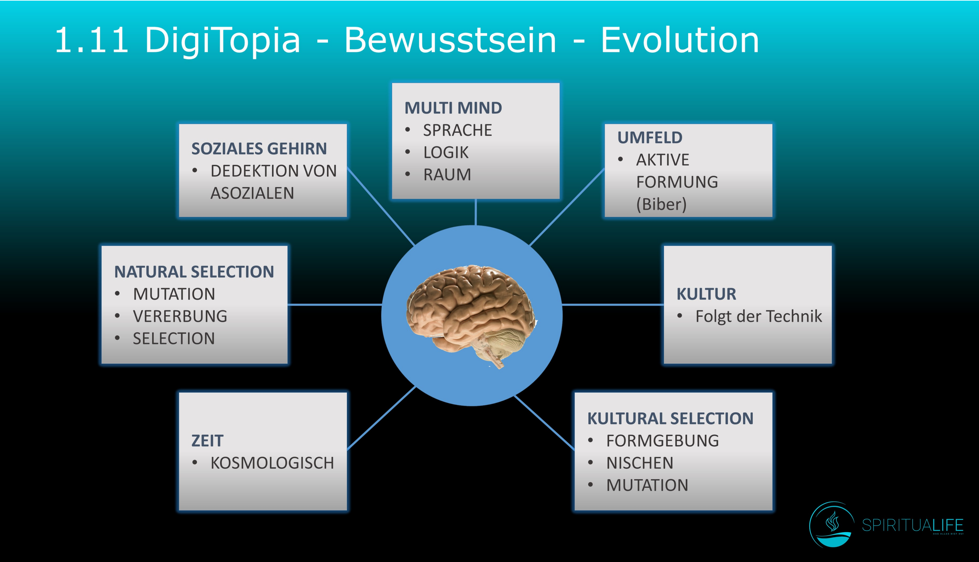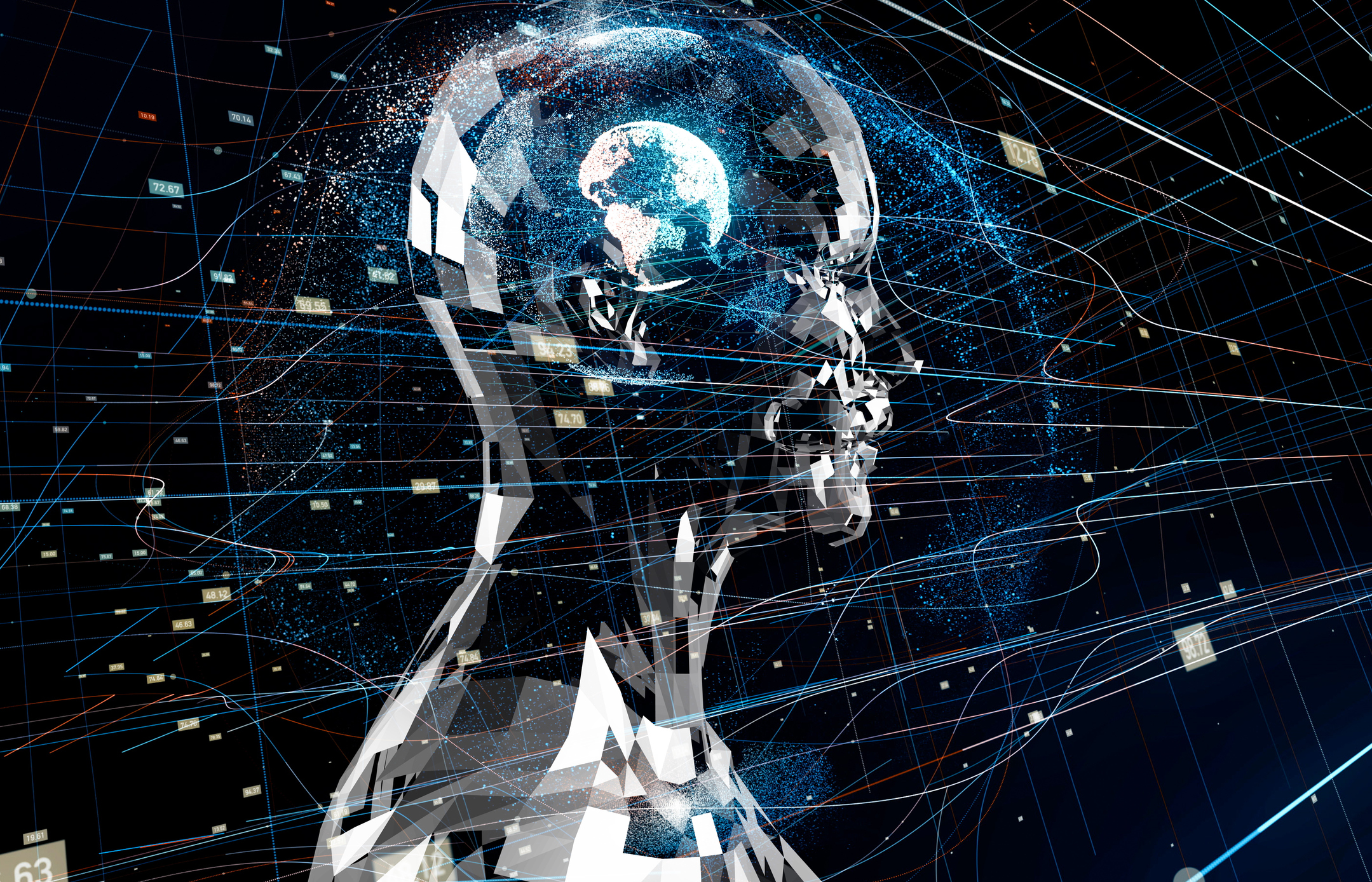The theory of evolution is proven to be one of the most studied scientific findings. The essential prerequisites for evolutionary processes are: time and randomness.
Viable and reproducing systems are very stable, but always make small mistakes in the reproduction process. These affect the new parts (offspring). It could then be the case that they adapt worse or better to the environment. The better adapted ones have a greater chance of survival and thus the selection according to the criterion of the best results. The second important component – time – plays just as big a role. In the end, it has needed many mutations from single cell to homo sapiens. This combination of time and mutation is popularly known as evolution. Strictly speaking, evolution does not only take place in living systems, but according to systems theory should be carried out in all kind of systems.
The development of thoughts could at least tentatively be thought of as an evolutionary model. Rightfully, one needs time to think and only the better thoughts get through. There were three outstanding selection processes in human genetic development. These are the upright gait, the shape of the hand and the exponential growth of the brain. It was this brain that enables living together in complex social systems. As a result, people were able to recognize and reject antisocial contemporaries. The development still had some levels on it – the homo sapiens can orient itself in space, has a sophisticated logic and uses language for communication.

So far, man has lived very close to nature. There was very little interference with the environment. The active deformation was low – but still natural. As the example of the beaver shows, it can annoy large tree trunks and consciously fall in a certain direction. The intervention of living things to shape the environment should be fairly normal.
Nevertheless, what humans are doing with technology right now seems to us something else. Are the building of skyscrapers, highways, Boeing 780, nuclear power plants, etc. also processes that are due to the naturalness of the human being. Or has an evolutionary leap happened much more in the 19th century as a result of the first industrial revolution. What is easy to see is the intense interaction between the technological environment and culture. Although time and again the culture is very durable, it quickly adapts to the artifacts of man. There is a nonlinear relationship between culture and technology that can be explained from two angles. The higher the cultural standard, the better the technology and the higher a society is technological, the more differentiated its culture. The most recent example of this is the smartphone. With the advent of this device, communication has changed and as it has changed, people are constantly demanding new features from their smartphone.
Finally, the consideration of whether digital systems, such as the just-mentioned smartphone, are also subjected to an evolutionary process. Again this consideration against the background of the two parameters time and randomness.
The randomness can be answered very simply with YES. It programs millions of apps that are not needed. Others, which are in great demand, are subject to very high competitive pressure. Whether it actually comes to a selection of the best can not be said (it can not synonymous with living systems). From this perspective, there is hardly a difference between bio and digital systems. At the time, though. Digital systems are historically and globally the fastest. It takes 20 years to reproduce a human. In contrast, every year a new iPhone comes on the market. This results in significantly more mutations in a shorter time. The environment then selects and the best survives. Digital systems thus implicitly have the opportunity to adapt to the environment faster and better than humans. Of course, those who warn of robots and artificial intelligence are right with this statement. The evolutionary leap from human to digitization and transhumanism would be complete.
The phenomenon of evolution is well studied and can be applied to a variety of systems. But why there is life and evolutionary development on our planet is completely unclear. Answers have been sought for thousands of years and have landed with the gods. Its still a lot to do. Especially for theologians – the digital theologians.







 Deutsch
Deutsch English
English